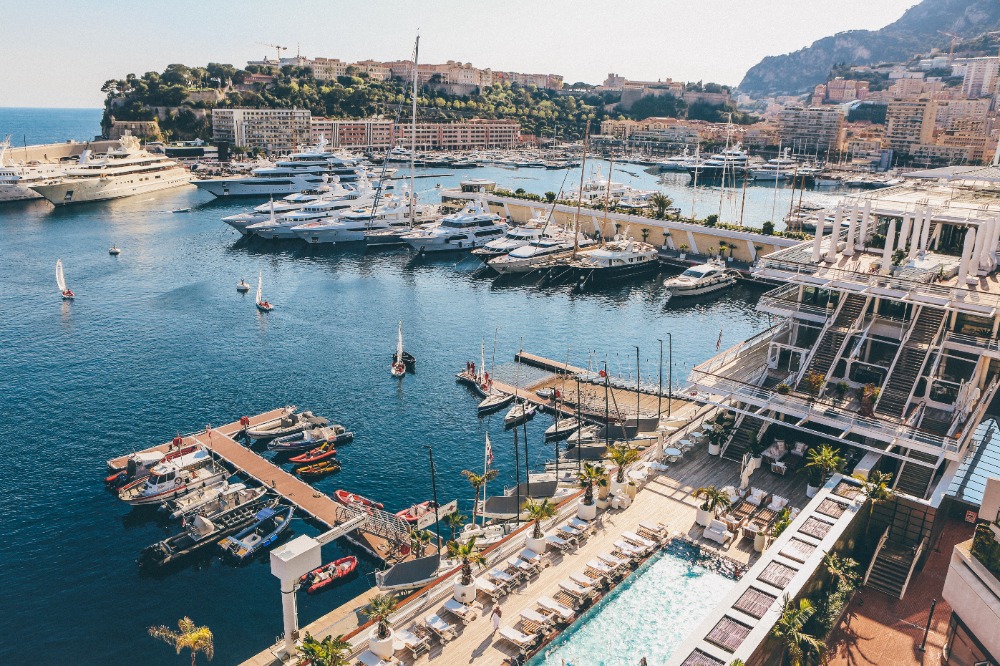What becomes of the superyachts owned by sanctioned Russians?
We speak to some of the industry's best lawyers to understand what the possible outcomes could be for superyachts with sanctioned Russian owners…
It's fair to say at this point that some of the excitement and anger surrounding the great yacht hunt has somewhat cooled down. The superyacht industry has scuffled its way out of the mainstream news cycle with a few cuts and bruises, but it remains alive, and the majority of high-profile Russian-owned superyachts that could be frozen have been frozen. But the question remains - what is going to happen to these yachts, and more importantly, at whose expense?
Right now, the industry is in the eye of the storm, and that doesn’t mean stakeholders can rest on their laurels. Something has to be done with these vessels, and for those frozen yachts in the EU, there is no telling for certain if they will be left to rot in the corner of a shipyard, eventually given back to their original owners, or ultimately sold to the highest bidder. Apart from the 106m Amedea in the US and the 72m Axioma in Gibraltar (Both will likely sell via judicial auction in the near future) we really don’t know what is going to happen.
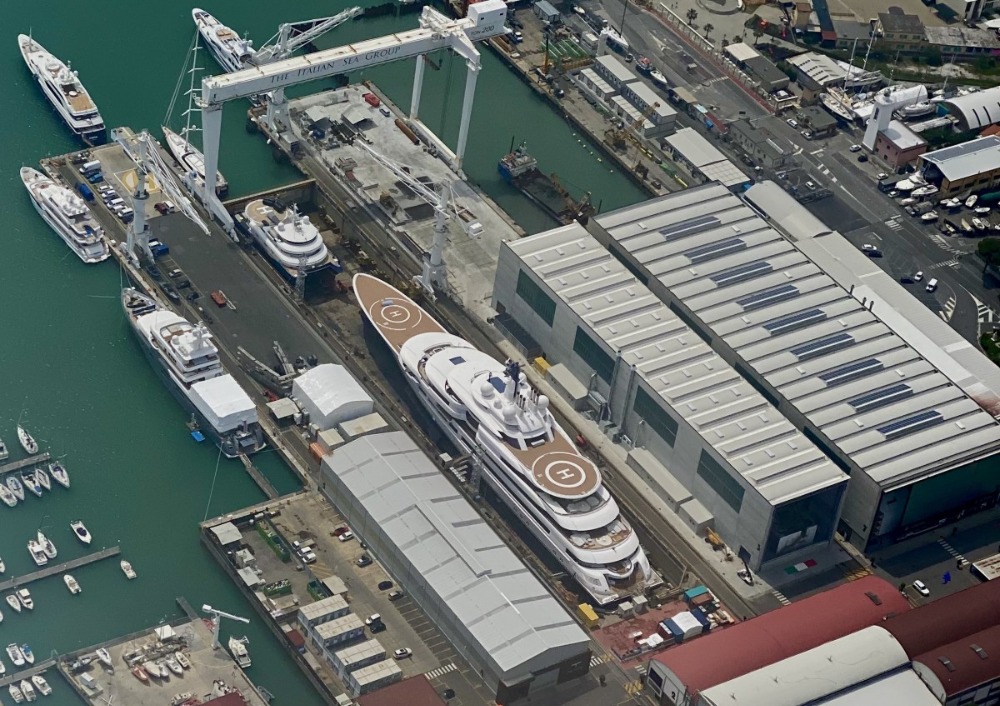 Scheherazade, (allegedly owned by Putin) was arrested in Italy earlier this year
Scheherazade, (allegedly owned by Putin) was arrested in Italy earlier this year
The first question most people would like to know the answer to is - How long can we expect these yachts to remain dormant? For frozen yachts in the EU, it is likely that they will remain as they are until the political situation changes in Ukraine. Speaking hypothetically, should the war come to an end with a peace agreement tomorrow, then the justification for the sanctions would end with it, and frozen assets would be able to move freely once again.
However, the prior question to this is the geopolitical one. It seems that Russia is unlikely to leave Ukraine, certainly not without taking the Donbas region. Most experts have forecasted that unless an agreement is reached between the two countries, or if there is a sudden regime change in Russia, the conflict will stretch into a long war that lasts for years, rather than months. Therefore, it is very unlikely that we will see these superyachts returning to their usual operations any time soon.
Secondly, many people would like to know (including the common taxpayer), whether or not these yachts are being maintained properly, and if so, who is paying for them? Duncan Bateson, Partner at Ince, spoke exclusively with SuperyachtNews on the matter, “A number of commentators have remarked that actually seizing a yacht and taking over responsibility for it is a bit like shooting yourself in the foot because you then have the cost and potentially the responsibility for looking after it. So I wouldn't be surprised, as things drag on, whether they (Countries in the EU) introduce rights to be able to claim the costs from the owner without releasing the yachts. I haven't seen it suggested anywhere, but it would seem like a logical minimum for when these costs start racking up. And then I think it'll occur to the governments that they need to at least cover those costs if they can.”
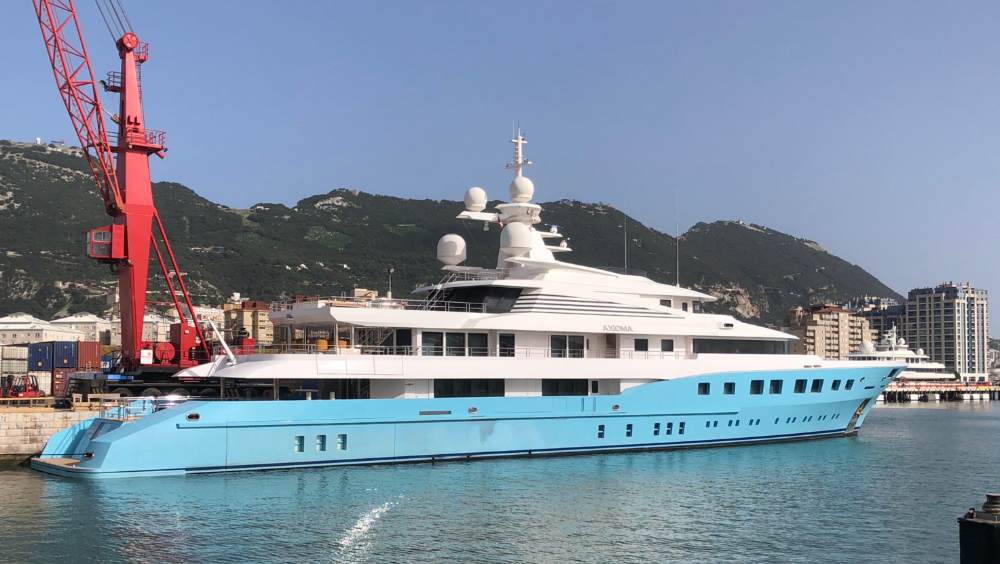 Axioma remains in Gilbraltar, will sell via judicial sale
Axioma remains in Gilbraltar, will sell via judicial sale
Benjamin Maltby, Partner at Keystone Law, also referenced the political edge that needs to be considered, “With the various mainland European countries, the yachts that are in places like France and Germany are just sitting there, the owner can't pay to look after them because they can't move money around. But the yachts are still sitting there and they require maintenance. If the value of the yacht is going to be maintained - and that is, as I understand it on mainland Europe, at the public expense - then that will increasingly become a political issue. Because if you're an opposition politician in France for example, it's very easy to say, ‘Well, look how much money is being spent on maintaining this yacht. How long is it going to go on for?’ So...
"The political pressure will increase and then they may have to do something rather than do nothing.”
It is hard to find out exactly how well superyachts in mainland Europe are being maintained. One anonymous source close to the 156m Dilbar, revealed that the vessel was in the dry dock at Blohm and Voss. According to the source, there are 10 Officers of The Watch keeping an eye out for fires and guarding the vessel - their salaries are being paid for by the yachts insurance company. The yacht had the majority of its scaffolding finished before its owner was sanctioned, but that scaffolding has since come down. It remains to be seen whether or not the vessel has undergone the respray and maintenance checks that were originally intended.
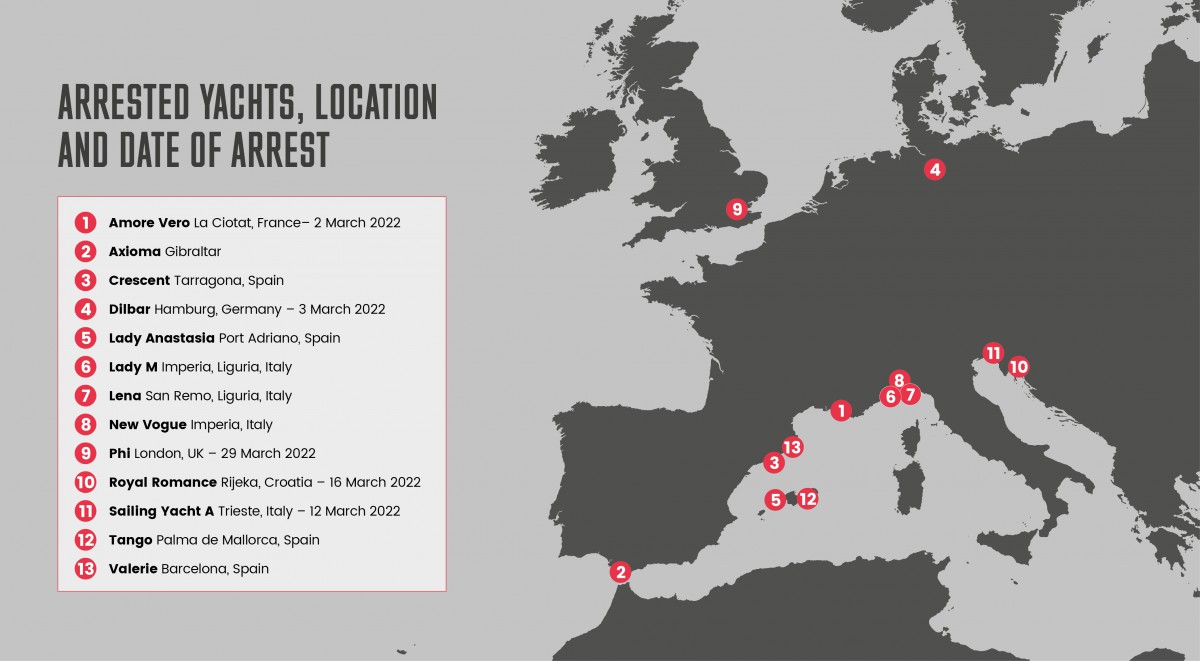
On this topic, Bateson explained, “Obviously they'll have to guard them and there would be a need to to be able to deal with them if there's a fire or if they require them to be moved. But whether they go any further than that, I doubt. It may well be that the owners themselves, wanting to preserve the value of the boats, will apply for licences to conduct basic maintenance on the engines and washing the decks and that sort of thing. It may not necessarily all land on the government. It may depend on what position the owners take, whether they look forward to enjoying free mooring for a few years or if they try and maintain the boat. These are the biggest boats, so why would you leave them to rot? If you (the owner) take the view that you'll never get it back, then maybe you won't care. But I'm sure everybody hopes that the war and the sanctions won't last forever. So it would be foolish not to. I'm sure the governments would grant those licences because if they rot, they become more of a problem.
"There is a logic to allowing basic maintenance at least to be conducted.”
According to all superyacht lawyers that were interviewed for this article, Western Governments and politicians have most probably underestimated the cost of maintaining these superyachts. But the chances of someone being removed from the sanctions list under current circumstances is zero to none. It would be political suicide for a country to lift sanctions on a superyacht owner that has been so heavily tarnished and linked to the Kremlin, even after the war is finished, public opinion would not favour the decision.
Given the media storm that came with the first wave of the sanction fallout, it would not be much of a surprise if there was a second media storm related to the industry and the ‘un-sanctioning’ of Russian Oligarchs. There should be some consideration for what these yachts represent, they are not merely a financial asset, they represent something much greater than that. These yachts are symbolic of something that most people do not agree with, and that influences what will eventually become of them.
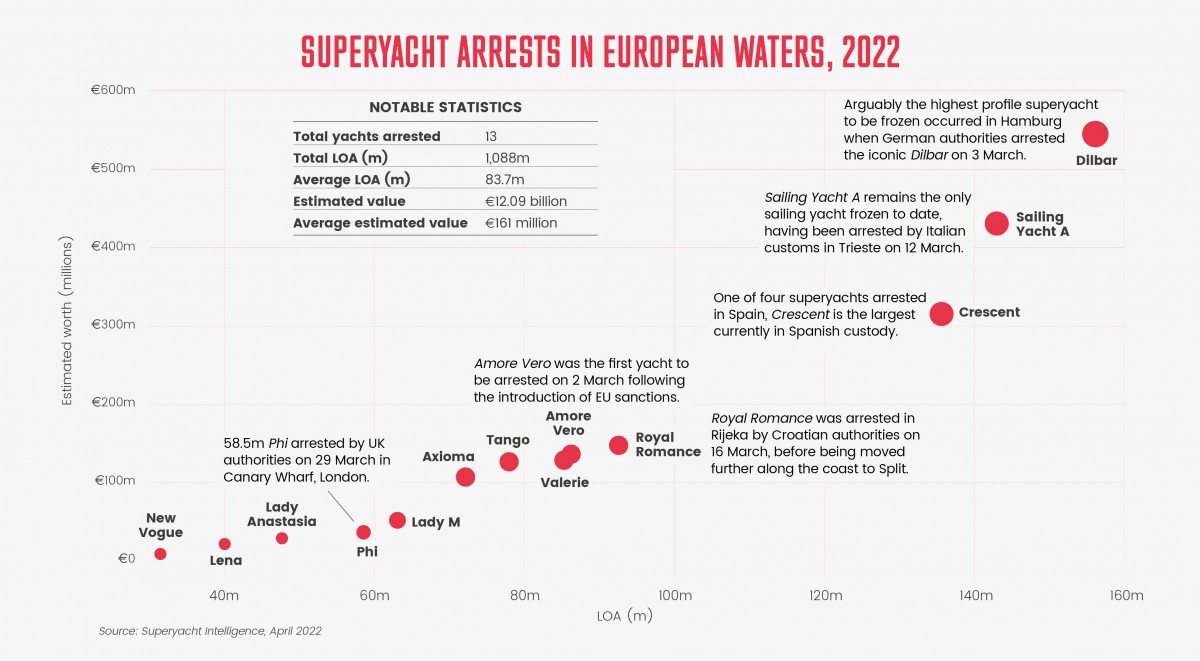
Maltby explains, “In due course, I think they (the superyachts) will be used as pawns because they are ‘icons of oligarchy’ if you like. They are symbolic of the regime, symbols of either success or corruption, depending on your point of view. But they are very public and very visible, and they are iconic. Therefore, politically they have a value as well as their financial value. It's not like freezing or unfreezing bank accounts which people can't see and that are just on paper. The yachts are right there and they are reported on and you can see their movement or lack of movement. We've all been watching the YouTube videos and it's obviously very public...
"You can expect the freeing up of yachts to have a political edge.”
Maltby continues, “I think it's unlikely that these yachts will be released in dribs and drabs. It's kind of all or nothing. Either someone is sanctioned or not. You can't have degrees of sanction, you are inevitably going to get differences between the EU, the UK, and the US and that is unfortunate, but that's how it is.”
Under the current sanction regime, it seems unlikely that countries in the EU will take the American approach to seizing superyachts. However, under existing law, if a company were to supply services to any kind of ship, and the owner does not pay for that service, then there is a right to have the yacht seized and sold via a judicial sale. This would allow the company to recover what was owed to them, and would also pay for the broker and court fees. The leftover money would remain, but it would not go back to the ultimate beneficial owner.
This feels like it could be the more likely outcome, over letting the yachts rot, or eventually freeing them up for their original owners to operate. The political messaging has not just been about sanctioning Russians because of the war in Ukraine - this is just a smaller story wrapped up in a bigger conversation about kleptocrats and their ties with the West. The US Justice Department even named their taskforce ‘Kleptocapture’. The PR element of this sanction fallout could come back around to haunt Western politicians. Kleptocrats (def. Someone who uses their power to steal countries' resources) are not exclusive to Russia, and it's very likely that people won’t forget the messaging behind the sanctions once a solution is reached further down the line.
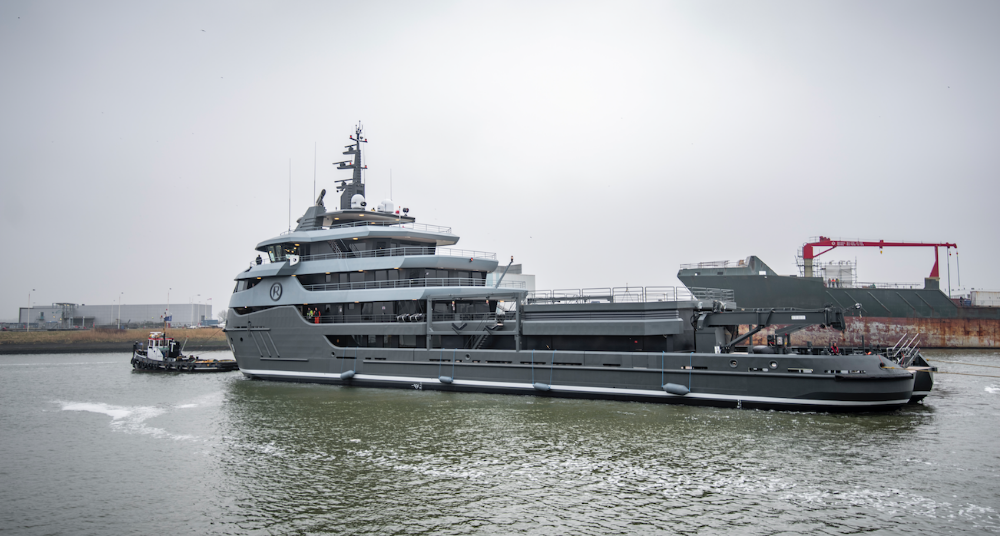 68m Ragnar was denied fuel in Norway
68m Ragnar was denied fuel in Norway
A more pressing, perhaps controversial line of questioning, would be to consider whether or not the industry would be better off without these superyachts and people involved. “The superyacht industry always struggles with media perception, and it's always picked on with the typical reference to the Bond villain. So it could improve the image if the Russian elites are no longer taking part in the Superyacht industry. But there are plenty of Russian businessmen who have made their money, apparently in a legitimate business, and it would be a big shame to lose from the superyacht industry. They buy some of the biggest boats. And we shouldn't forget, you know, they are the 1%, but they are also paying for the livelihoods of a lot of blue-collar workers.”
When asked the same question, Maltby didn’t skip a beat, “I think in the long term it is a positive for the industry. For too long superyachts have been icons of oligarchy, and they should be symbols of success, if they are symbols of success then they become aspirational objects. If they are just displays of illicit wealth then that's a bad thing. Superyachts are portals for massive and immediate redistributions of wealth. They are good things. If someone owns a piece of land it sits there pushing property prices up. With a superyacht, you are also giving fantastic careers to lots of young energetic people.
"It’s practically helicoptering money into places other than where the money is made.”
Whatever you may think of the sanction fallout, it would be hard to disapprove of the notion that there needs to be more transparency surrounding ownership structures, and that the current model for KYC (Know your client) isn’t enough to prevent a negative media storm. The suggestions for what could happen in this article are based on speculation for hypothetical scenarios, but it should be stressed that it is really hard to tell what the likely outcome will be. The best superyacht lawyers in the world can offer unrivalled insight and recite all the treaties and regulations, but even they can do little more than shrug their shoulders when pressed. What should also be remembered is that this is a time of war - one that is becoming physically and metaphorically entrenched. These superyachts will depreciate in value as the war drags on, and for those in Putin's inner circle, hiding behind a political veneer, these assets could be little more than the calculated cost of war.
156.00m 25.70m 6.30m 15917
Espen Oeino International
Winch Design
Lürssen
NEW: Sign up for SuperyachtNewsweek!
Get the latest weekly news, in-depth reports, intelligence, and strategic insights, delivered directly from The Superyacht Group's editors and market analysts.
Stay at the forefront of the superyacht industry with SuperyachtNewsweek
Click here to become part of The Superyacht Group community, and join us in our mission to make this industry accessible to all, and prosperous for the long-term. We are offering access to the superyacht industry’s most comprehensive and longstanding archive of business-critical information, as well as a comprehensive, real-time superyacht fleet database, for just £10 per month, because we are One Industry with One Mission. Sign up here.
Related news
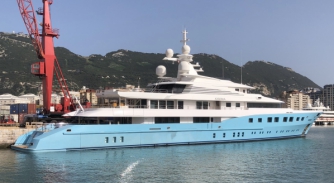
72m Axioma will sell via judicial auction following arrest
The Supreme Court in Gibraltar have ordered that the Admiralty Marshall should proceed with the judicial auction
Owner

Farouk Nefzi, CMO of Feadship, discusses the perception problem
The Chief Marketing Officer wants to turn Feadship into a true 'lovemark'...
Business
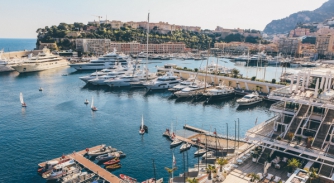
Imperial Yachts respond to being sanctioned
Imperial Yachts have claimed to be the victims of numerous unfounded and inaccurate accusations
Business
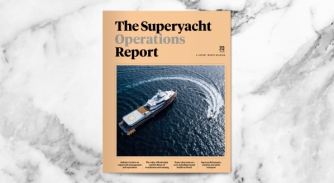
Out now! The Superyacht Operations Report
For this issue, we reflect on the broader implications of a frenetic period in the superyacht industry…
Crew
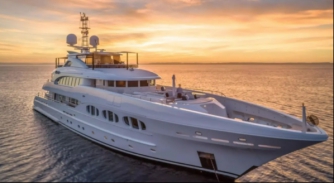
Bi-weekly brokerage analysis
Most productive two-week period of 2022 for the brokerage market with 15 sales
Fleet
Related news
Imperial Yachts respond to being sanctioned
4 years ago
Out now! The Superyacht Operations Report
4 years ago
Bi-weekly brokerage analysis
4 years ago
NEW: Sign up for
SuperyachtNewsweek!
Get the latest weekly news, in-depth reports, intelligence, and strategic insights, delivered directly from The Superyacht Group's editors and market analysts.
Stay at the forefront of the superyacht industry with SuperyachtNewsweek


